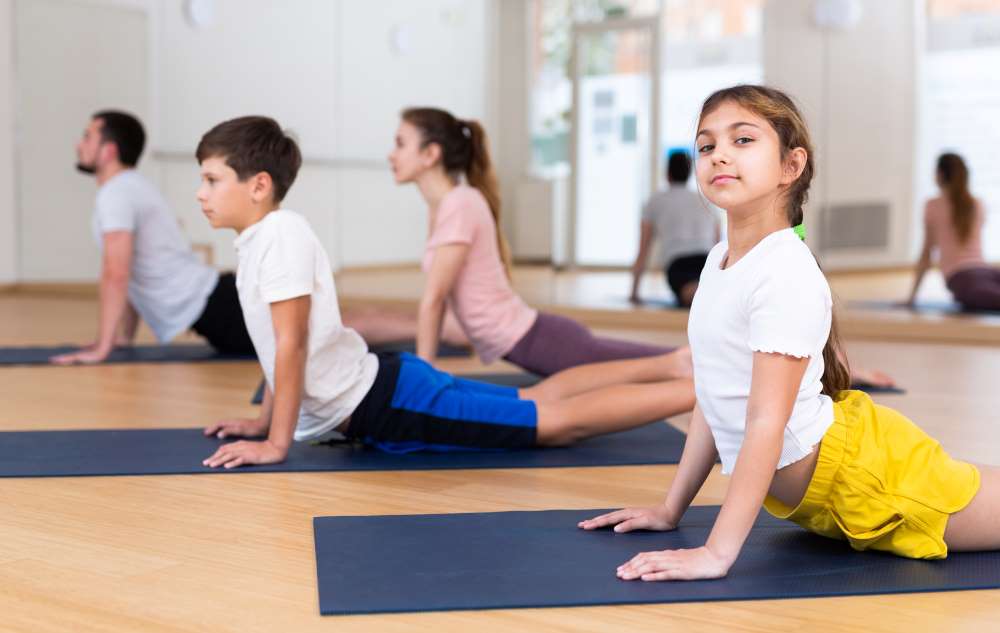
Regular exercise can help children maintain healthy body weight, build strong bones and muscles, and improve cardiovascular health. Physical activity also helps to reduce the risk of childhood obesity, diabetes, and other chronic diseases, which can negatively affect a child's health.
Besides physical health benefits, exercise improves children's mental health. Physical activity helps to reduce stress and anxiety, improve mood, and boost self-esteem and self-confidence in children. By being active, children can develop a positive self-image and a sense of accomplishment, leading to a happier and more fulfilling life.
Below are four reasons children should engage in exercise and physical activities.
Physical Health Benefits
Regular exercise can help children maintain healthy body weight, build strong bones and muscles, and improve cardiovascular health.
Obesity is a growing concern among children, and physical activity can be a valuable tool in preventing it. Exercise can help children burn calories, improve metabolism, and reduce body fat.
Physical activity also plays a vital role in preventing and managing diabetes. Exercise helps to lower blood sugar levels, improve insulin sensitivity, and reduce the risk of developing type 2 diabetes. It can also help children who have already been diagnosed with diabetes manage their condition.
Fatty liver disease is another health concern in children. It is one of the leading causes of chronic liver disease in kids. Exercising might be an excellent option if you're wondering how to reverse a fatty liver. Regular exercise can help improve liver function and reduce the amount of fat in the liver. Urge them to do activities they enjoy, such as basketball, soccer, dance, or going for family walks or bike rides.
By encouraging regular exercise, parents can help their children in reversing a fatty liver and improving overall physical fitness and well-being.
Mental Health Benefits
Physical activity not only has many physical health benefits for children but also has essential mental health benefits. Exercise can help children manage stress and anxiety, improve mood, and boost self-esteem and self-confidence.
Stress and anxiety are common among children, and physical activity can manage these issues. Exercise helps to reduce the production of stress hormones in the body. This helps children feel more relaxed and calmer. Physical activity can also help children develop coping strategies for stress and anxiety, leading to better mental health outcomes.
Exercise also improves mood and reduces symptoms of depression. It releases endorphins, which are the body's natural mood-boosting chemicals. Regular exercise can help children feel happier, more relaxed, and more positive about themselves and their lives.
When parents encourage regular physical activity, they are indirectly helping their children manage stress and anxiety. This helps improve their mood and self-esteem.
Social Benefits
One of the vital social benefits of exercise is the opportunity for children to make new friends and form positive social connections. Physical activity can provide a shared interest and common ground for children to interact and develop relationships. This can lead to improved social skills, increased self-confidence, and a greater sense of belonging.
Group activities or sports can also help children develop teamwork and collaboration skills. Working together towards a common goal can teach children important communication, leadership, and problem-solving skills that will help them throughout their lives.
Physical activity can also provide opportunities for children to practice critical social skills such as cooperation, communication, and empathy. By interacting with others in a positive and supportive environment, children can learn to understand and respect the feelings and perspectives of others. This can help them to build stronger and more positive relationships.
When you encourage your children to participate in group activities or sports, you are helping them develop the social skills and connections that will help them in life.
Educational Benefits
Exercise improves cognitive function, enhances memory and attention, and increases academic achievement.
Regular physical activity can help improve cognitive function in children. Exercise increases blood flow and oxygen to the brain, enhancing brain function and improving memory and attention. This can lead to improved academic performance and better overall learning outcomes.
Physical activity can also provide essential opportunities for hands-on learning and exploration. Outdoor activities, sports, and other physical pursuits can help children develop important problem-solving, critical thinking, and decision-making skills. These skills can be transferred to academic learning, leading to improved academic performance and greater enjoyment of the learning process.
When you promote regular physical activity among children, you provide them with hands-on learning opportunities. By so doing, you're helping your child improve cognitive function and develop essential problem-solving and critical-thinking skills.
Key Takeaway
Having a healthy, active lifestyle is built on a foundation of regular exercise and a nutritious diet. Teaching children good habits at a young age is one of the most important roles parents can play. No, it is not too late to start. Get in touch with your child's doctor for more advice.



























